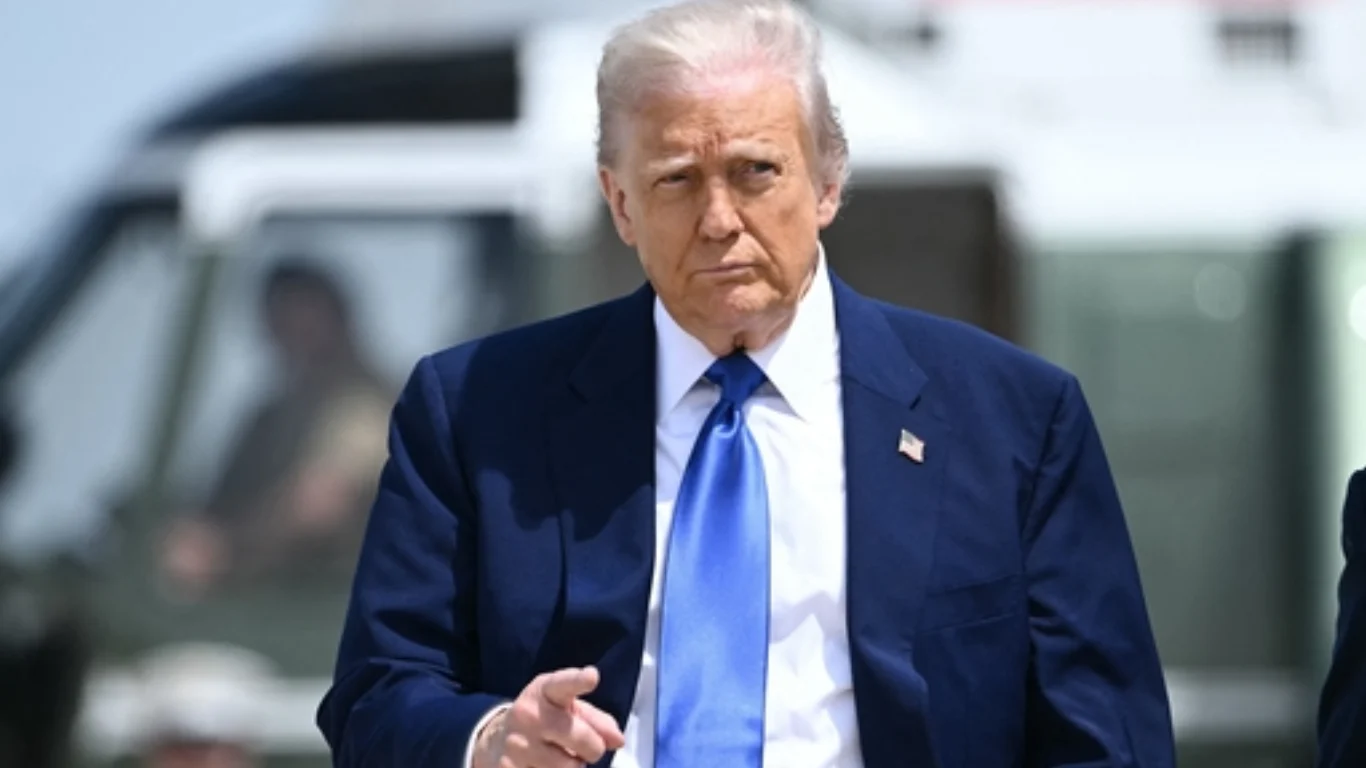
United States President Donald Trump is set to arrive in Saudi Arabia on Tuesday, kicking off a high-stakes diplomatic and economic tour of the Gulf that will also take him to Qatar and the United Arab Emirates. This marks his first major overseas trip since beginning his second term in office, and the White House has hailed it as a “historic return” to the Middle East — a region Trump continues to view as both a strategic ally and a lucrative marketplace for American interests.
According to administration officials, Trump’s three-nation visit is anchored in finalizing large-scale business agreements, particularly in the areas of defense, artificial intelligence (AI), infrastructure, and energy. While security and geopolitical issues — including ongoing conflicts and counterterrorism strategies — are also expected to be part of the agenda, the overriding emphasis of this tour is clear: deals, dollars, and diplomacy.
Economic Diplomacy in Focus
Daniel B. Shapiro, a fellow with the Atlantic Council’s Middle East Security Initiative and former U.S. Ambassador to Israel, told AFP that “White House sources have indicated the president will focus on ‘deals’ — not just symbolic cooperation, but real economic and security partnerships with tangible outcomes.”
This emphasis on economic diplomacy aligns with Trump’s broader second-term strategy, which leans heavily on bolstering American exports and strengthening strategic alliances through trade and investment rather than prolonged military engagement. According to insiders, the U.S. delegation is expected to ink multiple defense contracts with Saudi Arabia and the UAE, centered around advanced weapons systems, cybersecurity technologies, and AI-driven defense platforms.
Moreover, tech and energy executives from top U.S. firms — including defense manufacturers and renewable energy leaders — are reported to be accompanying the president, further underscoring the business-forward nature of the trip.
Saudi Arabia: The Centerpiece of the Tour
President Trump’s choice of Saudi Arabia as his first international stop in his second term is both symbolic and strategic. Riyadh has long been a key U.S. ally in the region and a top purchaser of American arms and defense technology. But more recently, under Crown Prince Mohammed bin Salman’s leadership, the kingdom has emerged as a central player in regional stability and economic transformation through its ambitious Vision 2030 reform agenda.
Trump is expected to receive full royal honors upon his arrival in Riyadh. Crown Prince Mohammed bin Salman will host a formal state dinner and a high-level summit involving leaders from the six-member Gulf Cooperation Council (GCC), which includes Bahrain, Kuwait, Oman, Qatar, Saudi Arabia, and the United Arab Emirates.
In addition to military and tech partnerships, sources suggest the two leaders will discuss expanding Saudi investments in U.S. infrastructure, particularly in clean energy and AI, which aligns with the Gulf’s broader efforts to diversify beyond oil. In return, Trump is expected to offer support for Saudi regional initiatives and increased military cooperation, particularly in missile defense and border security.
Geopolitical Undertones
Although the main focus of Trump’s Middle East tour is commercial, it takes place against a complex and shifting geopolitical backdrop. Just a day before his departure, Trump’s administration secured the release of the last known American hostage held in Gaza — a development that was widely viewed as a diplomatic win.
Additionally, the U.S. has resumed indirect nuclear talks with Iran, a move that signals a potential softening in rhetoric after years of “maximum pressure.” While the nuclear issue may not dominate Trump’s public engagements during the tour, insiders say it will be a topic of closed-door conversations, especially with Gulf leaders who remain wary of Iran’s regional ambitions.
Also on the diplomatic front, President Trump recently brokered a temporary ceasefire agreement with Yemen’s Houthi rebels, who are backed by Tehran. This truce, though fragile, is being positioned as a breakthrough toward ending one of the most devastating conflicts in the region, and could bolster Trump’s credibility as a negotiator.
Karoline Leavitt, the White House press secretary, said the president’s tour represents “a bold commitment to reshaping America’s partnerships in the Middle East.” Speaking to reporters before the departure, she added, “President Trump is returning to the region to reinforce a shared vision — one where extremism is defeated not by bombs, but by trade, innovation, and cultural exchange.”
Qatar and the UAE: Building Broader Alliances
Following his engagements in Saudi Arabia, President Trump will travel to Doha and Abu Dhabi, where he is expected to push forward economic and defense agreements similar to those being negotiated in Riyadh. Both nations have emerged as critical nodes in the U.S. strategic calculus — Qatar as home to a major U.S. military base and a key LNG partner, and the UAE as a rising power in the fields of finance, logistics, and aerospace technology.
In Qatar, Trump is expected to discuss energy cooperation, especially in light of the ongoing global energy transition. Discussions will likely include LNG export strategies and potential collaborations in clean energy research. In the UAE, Trump’s focus is anticipated to shift to smart cities, AI integration in public infrastructure, and enhanced defense systems tailored for urban and maritime security.
A Diplomatic Balancing Act
Trump’s Middle East tour comes at a delicate time for global diplomacy. As rival powers like China and Russia deepen their engagements in the region, the U.S. is keen to reinforce its role not only as a security partner but also as a preferred economic collaborator. Trump’s approach — mixing hard deals with soft power rhetoric — reflects a broader pivot toward what analysts are calling “strategic transactionalism.”
This model, where relationships are guided more by tangible outcomes than ideological alignment, appears to resonate well with Gulf leaderships who are keen to modernize rapidly without jeopardizing their domestic priorities or sovereignty.

















